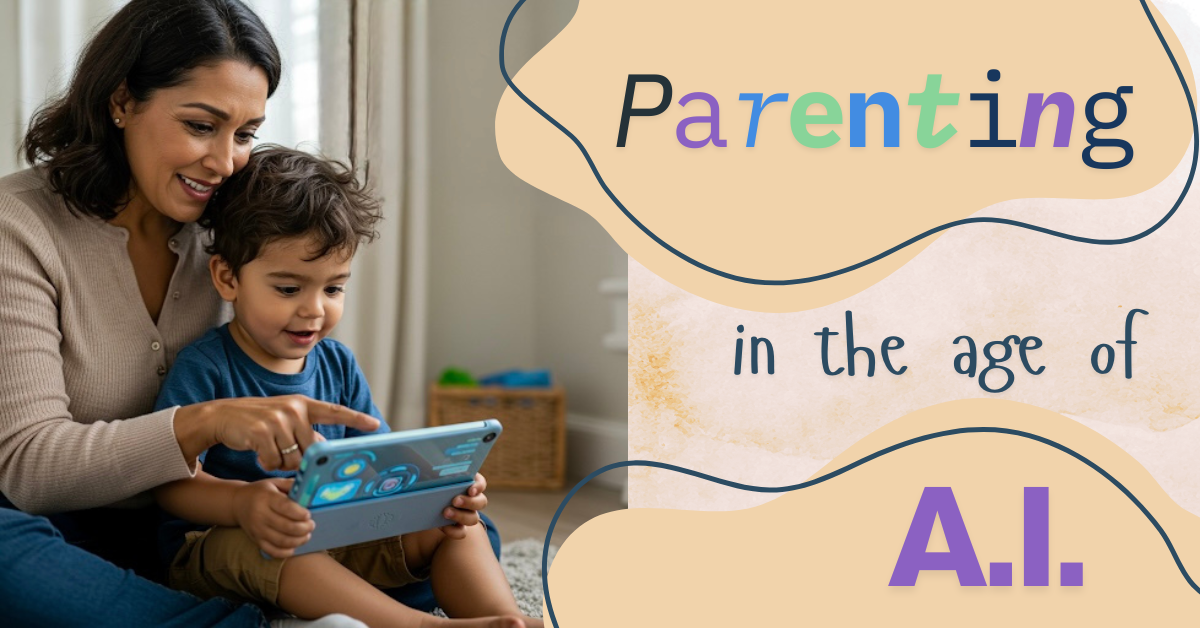Parenting in the Age of AI
In today’s rapidly evolving digital landscape, artificial intelligence (AI) is woven into the lives of our children—from virtual assistants and homework helpers to social media feeds and wearable health devices. AI holds exciting possibilities, but it also raises questions about safety, privacy, and the balance between innovation and human connection. Here are four key areas to help parents guide their children in using AI responsibly and safely.

1. Understanding AI’s Role in Education and Learning
AI-powered educational tools, like Brainly and Khan Academy, offer personalized learning experiences and instant feedback that cater to diverse learning needs. Yet, while these tools can enhance education, they require mindful use.
How Parents Can Help:
- Set boundaries: Teach your child to use AI as a supplement to their learning—not a substitute for effort and critical thinking.
- Promote academic integrity: Watch for signs of over-reliance on AI in homework, such as work that doesn’t match your child’s usual style or lacks personal touches.
- Encourage curiosity: Explore AI tools together and discuss their possibilities and limitations.
2. Navigating AI in Social Media and Entertainment
AI is the engine behind personalized social media feeds and entertainment platforms. These tools engage teens but can also expose them to privacy risks and misinformation.
Tips for Parents:
- Focus on digital literacy: Teach your child to question the accuracy of online content, verify sources, and spot misinformation.
- Discuss privacy concerns: Help your child understand how AI collects personal data and show them how to clear cookies, block suspicious users, limit exposure and stay secure online.
- Engage in their digital world: Stay involved by asking about the apps and platforms they use, and encourage open conversations about their experiences.

3. Supporting Health and Well-being in the AI Era
AI health apps and wearables, like fitness trackers and mental health chatbots, can empower teens to take charge of their well-being. However, the reliance on technology requires a balanced approach.
What Parents Can Do:
- Monitor screen time: Work with your child to create healthy routines that prioritize offline activities and face-to-face interactions.
- Stay alert to changes: Watch for shifts in behavior, like isolation or sudden drops in grades, that might indicate over-reliance on AI tools or emotional distress.
- Be a resource: Let your child know they can come to you for support, and don’t hesitate to involve professionals when needed.
4. Preparing for an AI-Driven Future
AI is shaping the job market and the skills needed for success, offering opportunities in fields like robotics and data science. Preparing teens for this future means fostering adaptability, creativity, and critical thinking.
How Parents Can Guide:
- Explore career paths: Discuss how AI is transforming industries and encourage your child to explore their interests and develop new skills.
- Think ethically: Engage in conversations about the ethical dilemmas of AI, such as bias, privacy, fabricated information and accountability.
- Emphasize lifelong learning: Help your child understand the importance of staying curious and up-to-date with emerging technologies.

Final Thoughts
Instead of banning AI, parents can embrace it as a learning opportunity to teach responsibility and digital literacy. By staying informed, fostering open communication, and setting boundaries, families can navigate the world of AI together—turning challenges into opportunities for growth and collaboration.

Suzy Brooks is the Director of Instructional Technology for Mashpee Public Schools in MA where she loves supporting families in the Digital Age. Her Family Resource website includes resources regarding Sexting, gaming, AI, sextortion, online predators, terror networks and other topics related to technology. Learn more by visiting https://sites.google.com/mpspk12.org/mpsfamilyresources/home
Images in this post were created using Google Gemini and edited in Canva. Copilot assisted in limiting the draft to only 4 topics.







